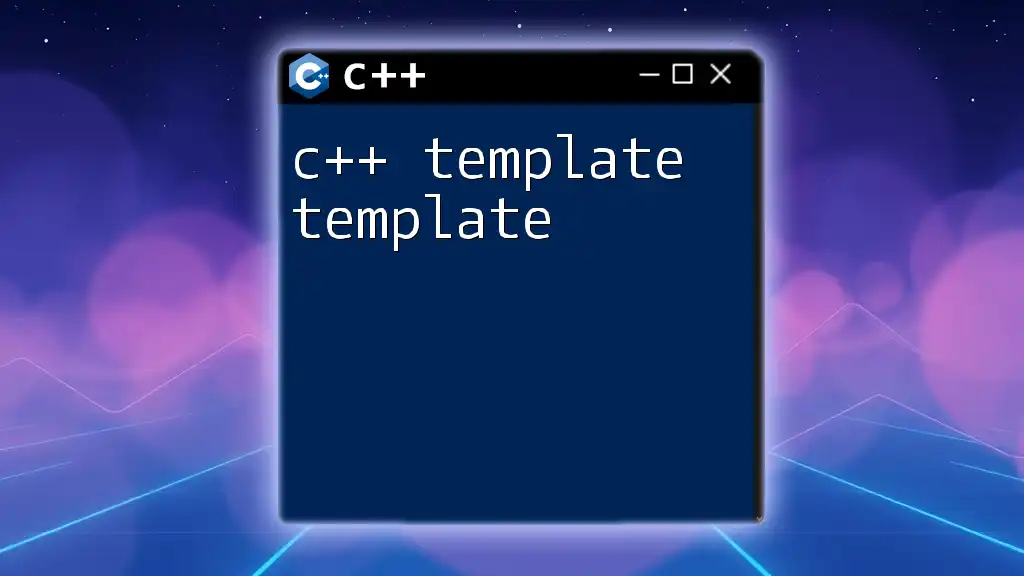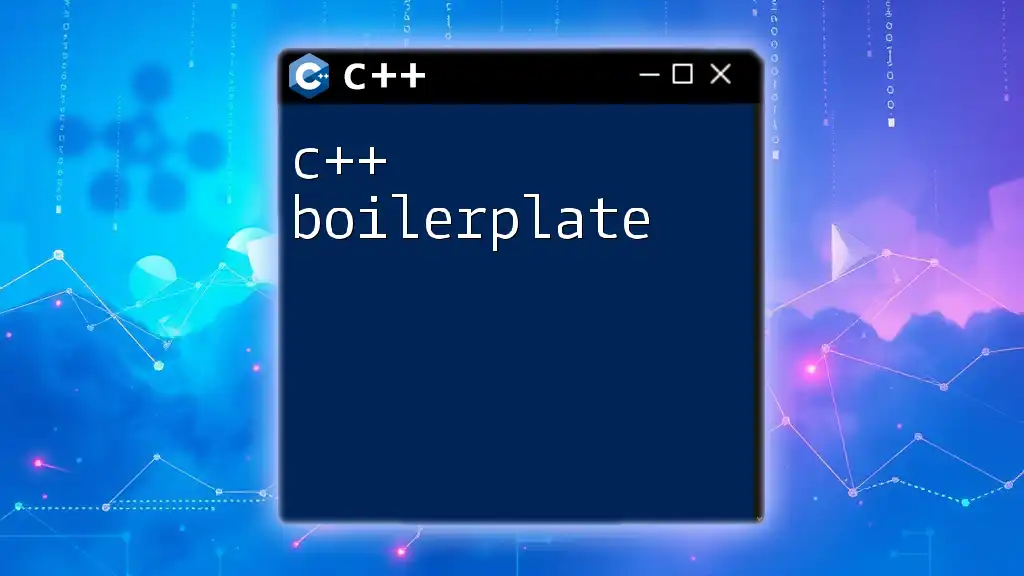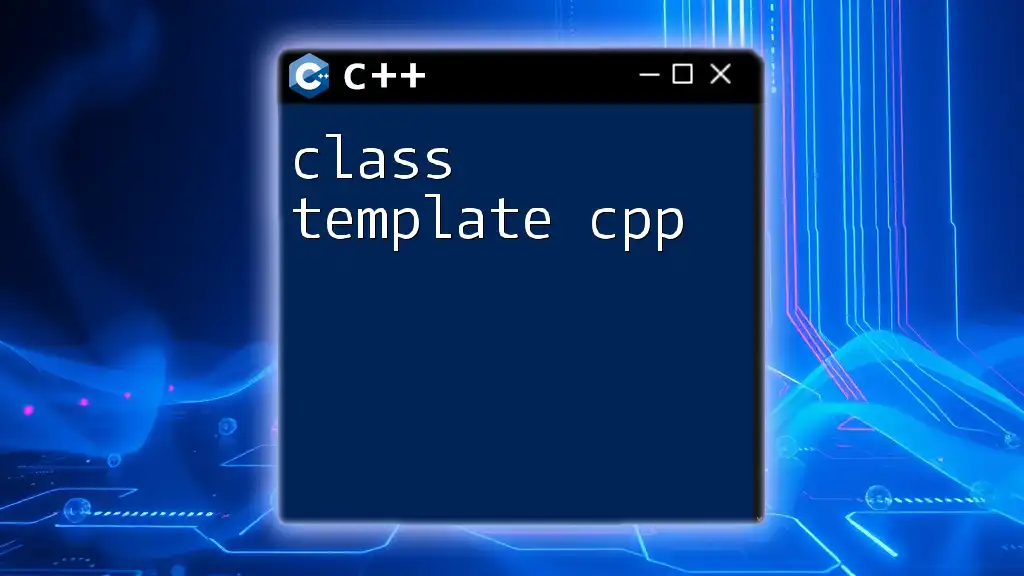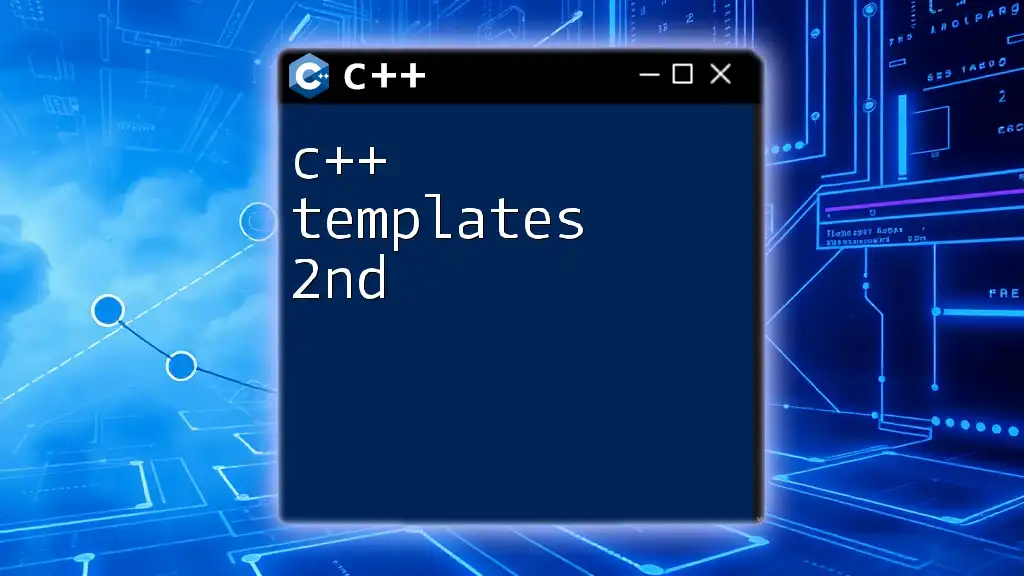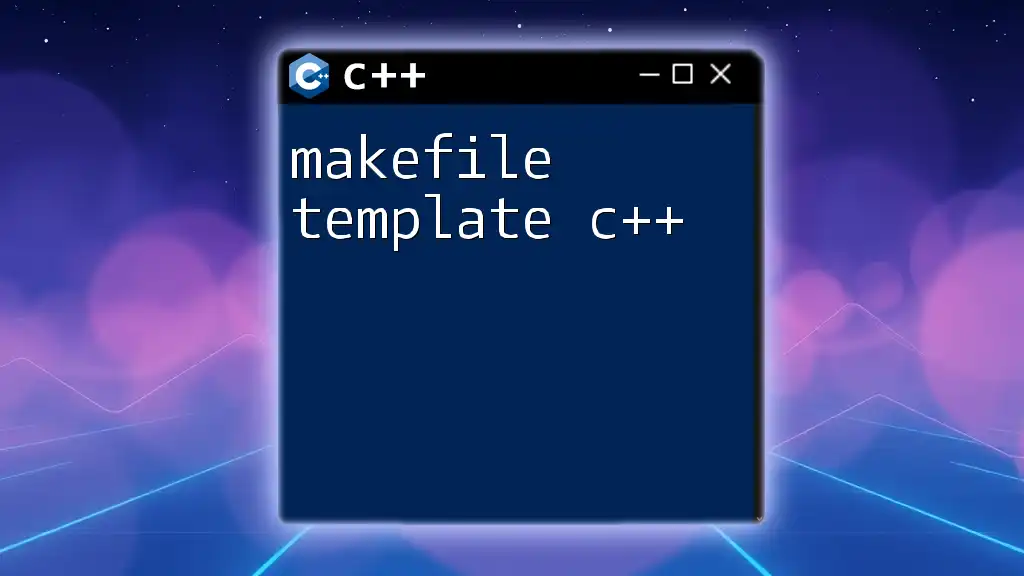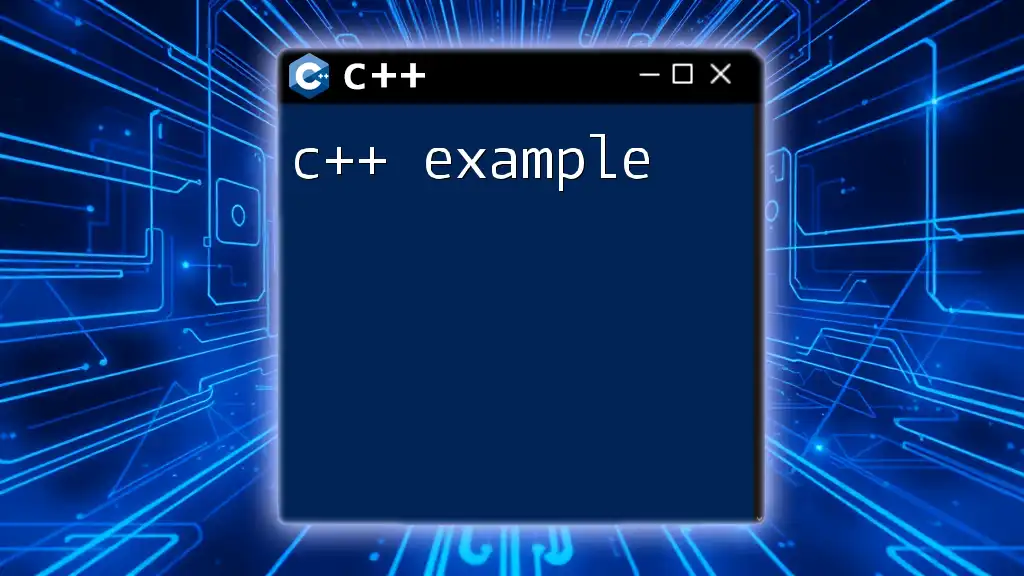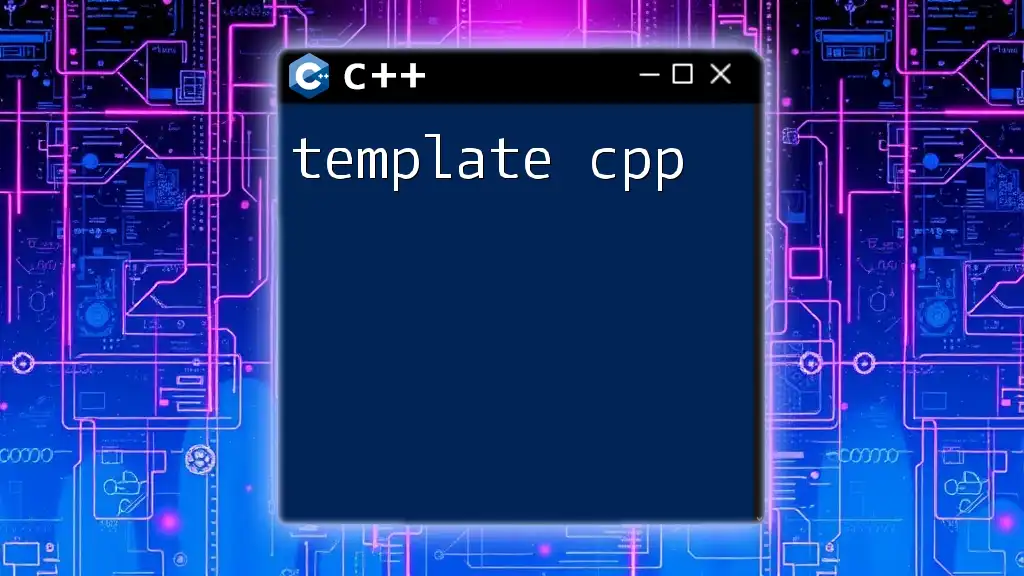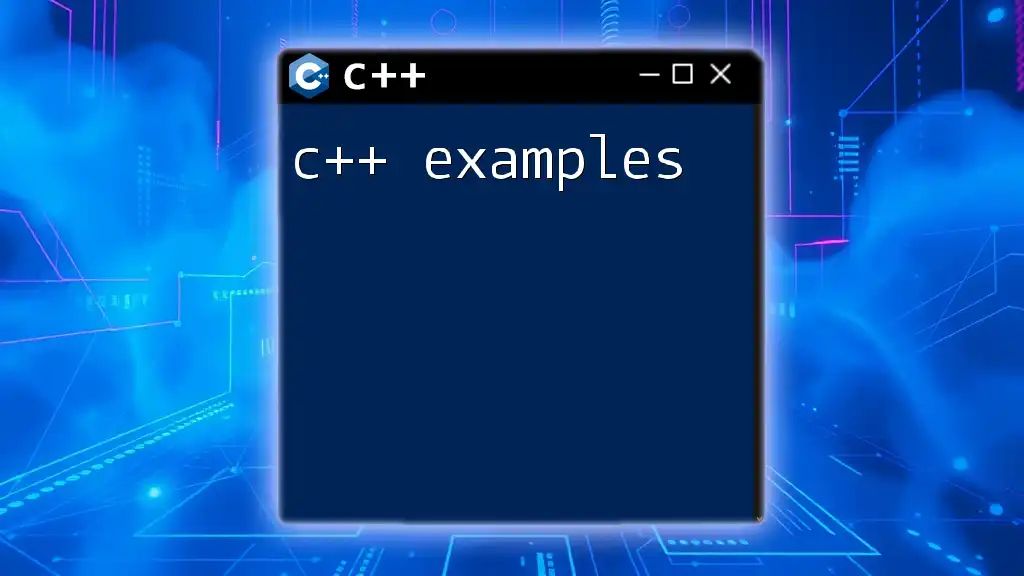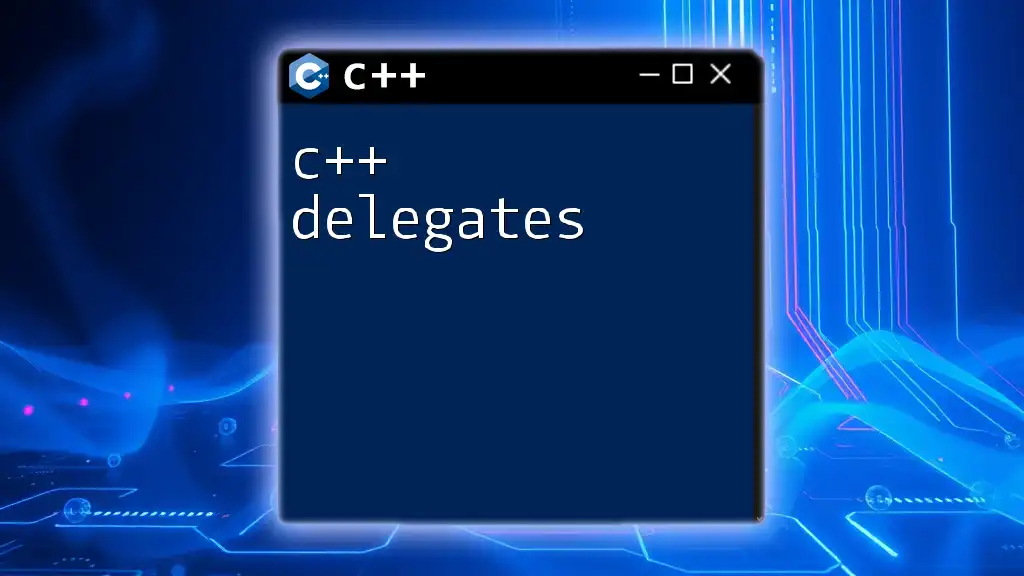C++ template templates allow you to create templates that can take other templates as parameters, enabling greater flexibility and code reusability in your generic programming.
Here's a code snippet illustrating the concept:
template <template <typename, typename> class Container, typename T, typename Allocator>
class MyClass {
public:
Container<T, Allocator> myContainer;
void addElement(const T& element) {
myContainer.push_back(element);
}
};
What Are C++ Templates?
C++ templates are a powerful feature of the C++ programming language that allows developers to create generic and reusable code. They enable functions and classes to operate with any data type without being rewritten for each specific type. This functionality fosters code reusability, maintainability, and type safety.
What is a Template Template?
A template template is a specialized form of a template that can accept other templates as its parameters. This allows for the creation of more abstract and flexible programming patterns. While regular templates allow for type parameters, template templates extend this concept, enabling higher-order abstractions.
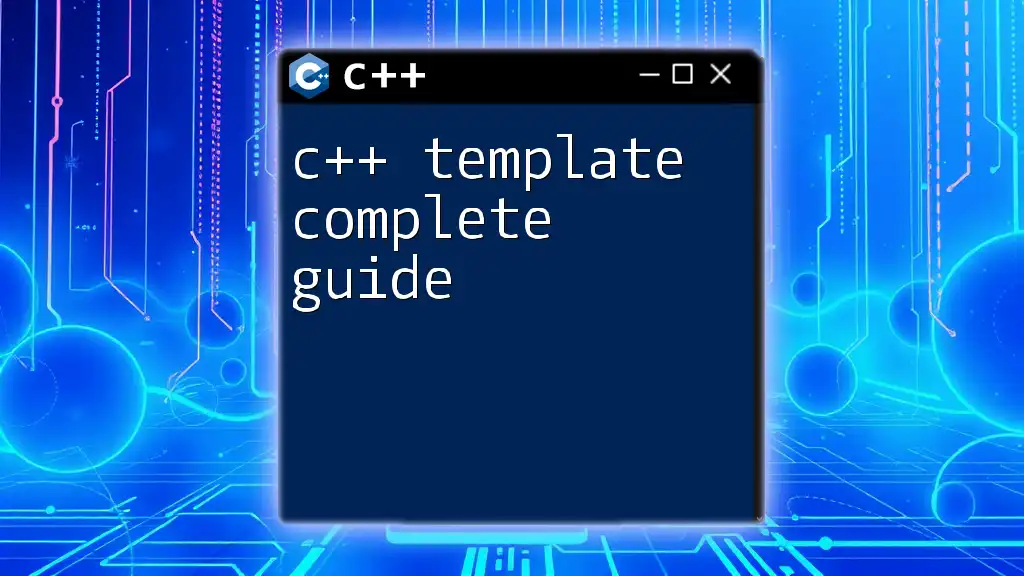
Understanding C++ Templates
What is a C++ Template?
C++ templates come in two primary forms: function templates and class templates.
- Function Templates: These allow functions to operate with generic types, helping you write a single function that can work with different data types.
- Class Templates: Similarly, class templates provide a way to define classes that can handle types as parameters.
How Templates Work in C++
During the compilation process, templates undergo "instantiation," where the compiler generates the specific versions of templated functions or classes corresponding to the types used. Templates provide significant advantages, including type safety and the elimination of code duplication.
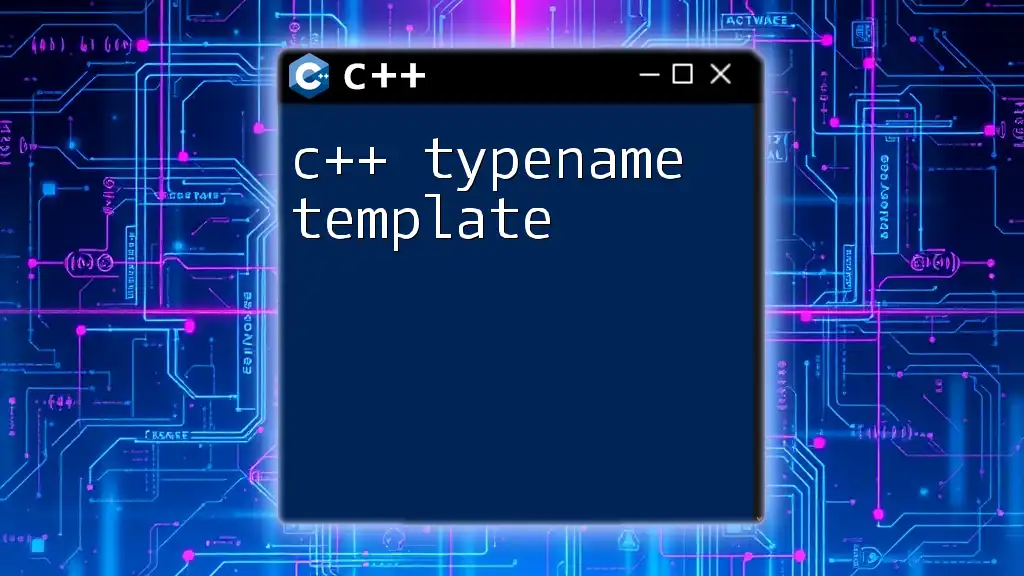
Dive into Template Templates
What is a Template Template?
A template template is essentially a template that takes another template as its parameter. It offers a means to define more complex structures while maintaining type independence. Understanding the distinction between templates and template templates is crucial for software development, especially for those seeking to leverage advanced C++ features.
Use Cases for Template Templates
Incorporating template templates can be beneficial in various scenarios, especially when dealing with:
- Nested data structures: Such as when you need a container of containers.
- Library design: Where flexibility and abstraction can enhance usability.
- Framework development: Allowing for generic programming where user-defined types need to be supported.
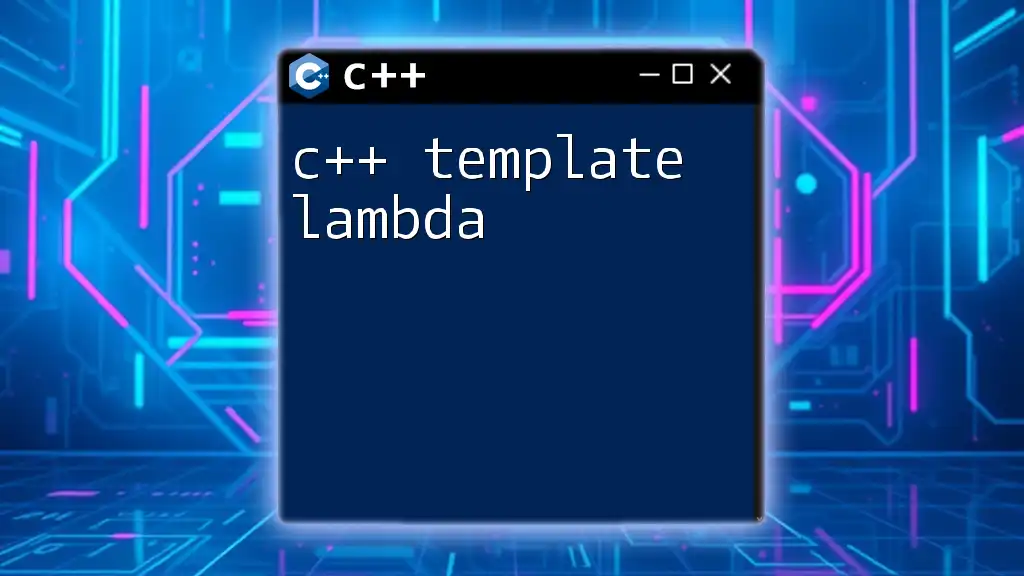
Syntax of Template Templates
Basic Syntax
To define a template template, you would use the following structure:
template <template <typename, typename> class Container, typename T>
class Wrapper {
Container<T, std::allocator<T>> _container;
};
In this example, `Container` is itself a template that requires two type parameters, while `T` serves as a regular type parameter.
Advanced Syntax
Template templates can also work with nested templates. Here's how:
template <template<typename, typename> class Container, typename T>
class AdvancedWrapper {
Container<T, std::allocator<T>> _dataContainer;
Container<Container<T, std::allocator<T>>, std::allocator<Container<T, std::allocator<T>>>> _nestedContainer;
};
In this code snippet, we've defined an `AdvancedWrapper` that can hold one container within another, demonstrating the flexibility of template templates.
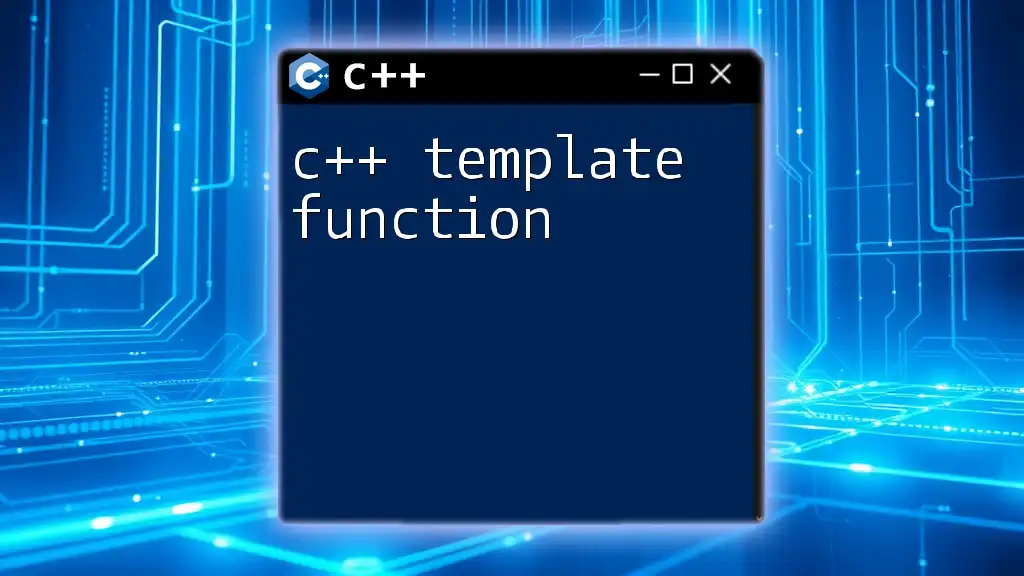
Example Implementation
A Simple Template Template Example
Let's consider a straightforward example to showcase how we might utilize a template template. The following code demonstrates creating a generic wrapper for STL containers:
#include <vector>
#include <list>
template <template<typename, typename> class Container, typename T>
class ContainerWrapper {
Container<T, std::allocator<T>> container;
public:
void addElement(const T& element) {
container.push_back(element);
}
void printElements() const {
for (const auto& el : container) {
std::cout << el << " ";
}
std::cout << std::endl;
}
};
This `ContainerWrapper` can be instantiated with different STL container types like `std::vector` or `std::list`, allowing flexible data storage while ensuring type safety.
Real-World Application
Template templates find their best use in libraries and frameworks where various data types must be supported. For example, consider a library that manipulates data structures. Using template templates allows for the definition of a single, reusable class that can manage multiple containers without rewriting code for each type.

Advantages of Using Template Templates
Utilizing template templates offers several benefits:
- Code Reusability: Template templates promote writing generic code that can work with any container type, thus reducing redundancy.
- Strong Type Safety: They ensure that types are checked at compile time, catching potential errors early in the development cycle.
- Easier Maintenance: With less duplicated code, maintenance becomes simpler, as changes need only occur in one location.
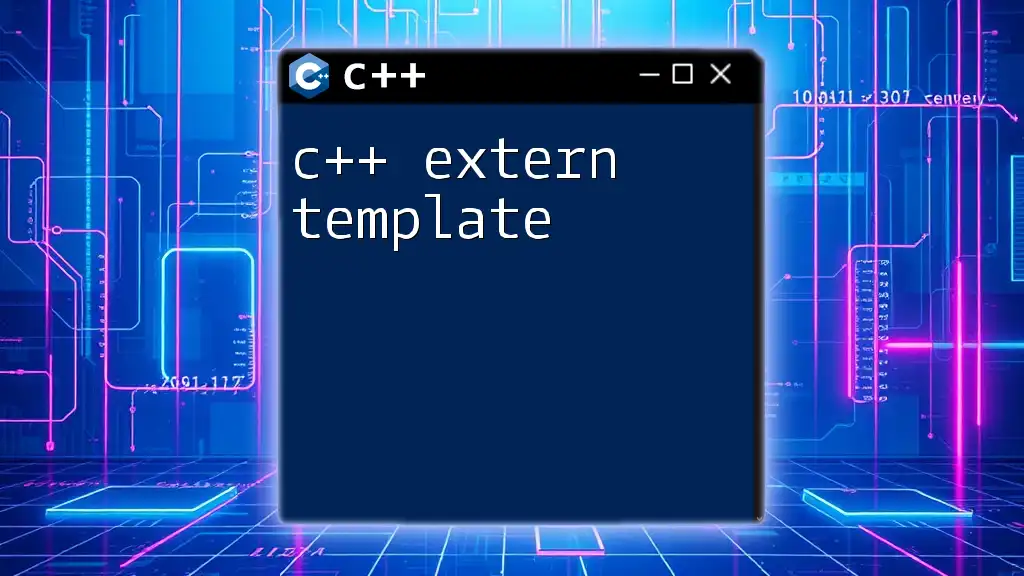
Challenges and Considerations
Complexity and Readability
While template templates enhance flexibility, they can also introduce complexity. The intricate syntax and the conceptual leap from ordinary templates may hinder readability. To manage complexity, developers should adopt clear naming conventions and comment generously to clarify intentions and usage.
Compiler Errors and Debugging
Template code can lead to complex compiler errors that may be difficult to decipher. Common pitfalls include mismatched types and failed instantiations. When debugging template template code, pay close attention to error messages, and consider using simpler types to isolate issues.
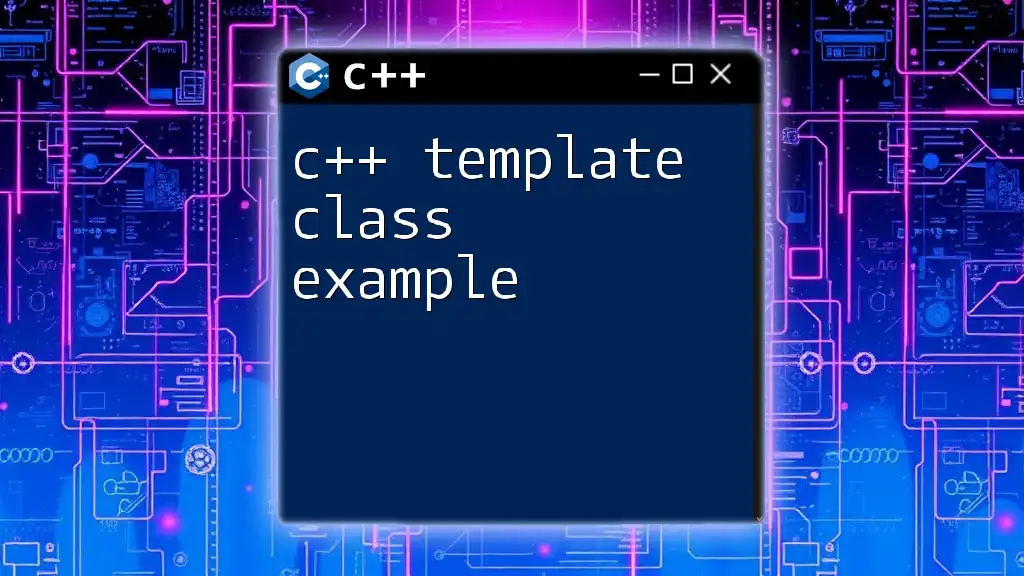
Best Practices
Writing Clear and Maintainable Template Code
It's vital to maintain clarity when working with templates. Here are some best practices:
- Use Descriptive Names: Choose clear and meaningful names for template parameters.
- Comment Extensively: Write detailed comments explaining the purpose and functionality of your templates.
Using Template Templates Sparingly
Despite their advantages, template templates should not be overused. Balance abstraction and practicality by employing Template templates only when necessary, ensuring the overall codebase remains straightforward and maintainable.
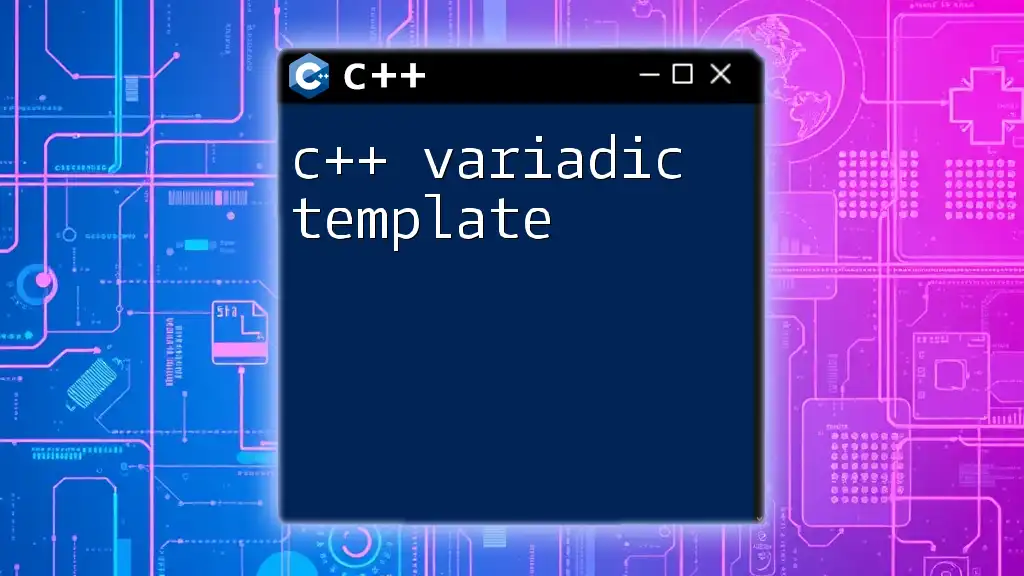
Conclusion
Understanding the concept of C++ template templates augments a developer's ability to write flexible, reusable, and maintainable code. They enable you to explore advanced programming patterns while maintaining the robustness of the C++ type system. To further improve your programming skills, consider delving deeper into the world of templates and their applications in modern software development.

Additional Resources
For those eager to expand their knowledge, consider exploring C++ documentation, relevant online courses, and programming communities where best practices and innovations in template programming are frequently discussed.

FAQs
What is the difference between a template and a template template?
A template is a blueprint that defines how to generate a class or function based on the type provided. In contrast, a template template takes templates as parameters, allowing for more complex abstractions.
Can template templates be used with non-template classes?
No, template templates specifically require template parameters to function. They are designed to work with other templates, providing type flexibility.
How do you debug template template code in C++?
Debugging often involves simplifying the types used in templates or breaking them down into simpler mechanics to isolate issues. Compiler messages may also provide insights into areas where the code is failing.
Are there performance implications when using template templates?
While template templates do add some overhead due to code generation, the performance impact is generally negligible compared to the benefits gained in flexibility and code reduction.

